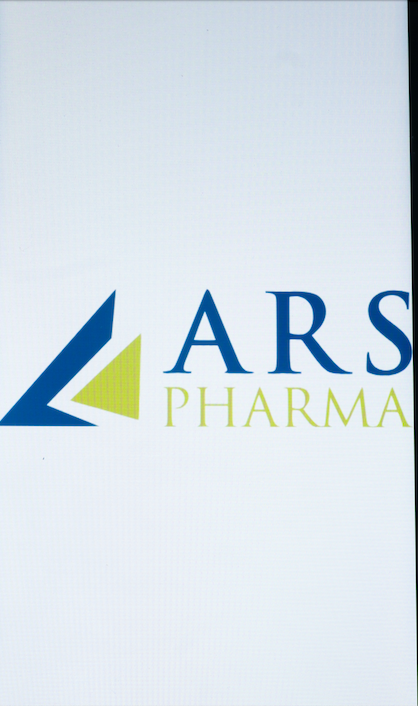PDUFA date set for neffy 1 mg for children who weigh 33 lbs or more
Neffy was first approved in September 2024 to treat type 1 allergic reactions in patients who weigh at least 66 lbs (33 kg).
PDUFA date set for neffy 1 mg for children who weigh 33 lbs or more | Image Credit: © Postmodern Studio - © Postmodern Studio - stock.adobe.com.

ARS Pharmaceuticals has announced new developments for neffy (epinephrine nasal spray), focusing on pediatric patients who weigh 33 lbs to 66 lbs (15 to 30 kg). According to preliminary fourth-quarter 2024 financial results and objectives for 2025, the company has filed a supplemental New Drug Application (sNDA) with the FDA for a 1 mg dose of neffy for this weight group. The Prescription Drug User Fee Act target action date is set for March 6, 2025, and, pending approval, product availability is expected in the second quarter of 2025.1
These updates signify an milestone in the expansion of treatment options for pediatric patients with severe allergic reactions, including anaphylaxis. This follows the FDA's approval of neffy on August 9, 2024, as the first nasal spray treatment for anaphylaxis in adults and children weighing at least 66 lbs.2
FDA Approval History of neffy
The FDA’s initial approval of neffy was based on pharmacokinetic data demonstrating comparable epinephrine blood concentrations achieved with the nasal spray versus approved epinephrine injection products. Four studies involving 175 healthy adults without anaphylaxis indicated that neffy produced similar increases in blood pressure and heart rate—key epinephrine effects for managing anaphylaxis.2
"Anaphylaxis is life-threatening, and some people, particularly children, may delay or avoid treatment due to fear of injections," said Kelly Stone, MD, PhD, associate director of the FDA’s Division of Pulmonology, Allergy and Critical Care, at the time of approval.2
"The availability of epinephrine nasal spray may reduce barriers to rapid treatment of anaphylaxis. As a result, neffy provides an treatment option and addresses an unmet need."2
This approval came nearly a year after the FDA issued a Complete Response Letter requesting additional pharmacokinetic/pharmacodynamic studies to assess repeat doses of neffy compared to epinephrine injection products. Subsequent data supported its benefit-risk profile, with the FDA’s Pulmonary-Allergy Drug Advisory Committee voting in May 2023 to recommend approval for adults and children over 66 lbs.2
Pediatric Safety and Efficacy Data
The safety and efficacy of neffy have been evaluated in various studies, including a Phase 3 trial conducted in Japan. This trial included 15 children and adolescents aged 6 to 17 years who experienced anaphylactic symptoms after an oral food challenge. Neffy demonstrated rapid symptom resolution comparable to injectable epinephrine, reinforcing its effectiveness as a needle-free alternative.2
In response to the 2023 CRL, ARS Pharmaceuticals conducted additional studies comparing repeat doses of neffy to epinephrine intramuscular (IM) injections in both adults and pediatric populations. These studies demonstrated that neffy achieved epinephrine exposure levels in pediatric patients that were comparable to, or slightly greater than, those observed with injections. The findings underscore neffy’s potential as a safe and effective option for managing anaphylaxis in younger patients.2
Future Outlook
The expansion of neffy’s approval to include children weighing 15 to 30 kilograms addresses a gap in treatment options for this vulnerable population. According to ARS Pharmaceuticals, this advancement aligns with their broader objectives for 2025, emphasizing improved accessibility and needle-free solutions for managing severe allergic reactions.1
“Until today, patients with severe allergic reactions, including anaphylaxis, only had one treatment option—an often painful and anxiety-inducing needle injection of epinephrine,” said Thomas Casale, MD, professor of medicine at the University of South Florida, to Contemporary Pediatrics at the time of original approval. “This approval means that patients finally gain a long-awaited, needle-free, easy-to-carry epinephrine delivery method that has the potential to reduce time to administration, which can lead to better clinical outcomes and improvements in quality of life.”2
Pending the FDA’s decision, the anticipated availability of neffy 1 mg in mid-2025 could provide a significant breakthrough for young children and their caregivers, offering a more accessible and less intimidating treatment option.1
References:
- ARS Pharmaceuticals Announces Preliminary Fourth Quarter 2024 Financial Results and 2025 Objectives for neffy® Epinephrine Nasal Spray. GlobeNewswire. January 13, 2025. Accessed January 13, 2025. https://www.globenewswire.com/news-release/2025/01/13/3008466/0/en/ARS-Pharmaceuticals-Announces-Preliminary-Fourth-Quarter-2024-Financial-Results-and-2025-Objectives-for-neffy-epinephrine-nasal-spray.html
- FDA approves neffy as first nasal spray to treat anaphylaxis. Contemporary Pediatrics. August 9, 2024. Accessed January 13, 2025. https://www.contemporarypediatrics.com/view/fda-approves-neffy-as-first-nasal-spray-to-treat-anaphylaxis